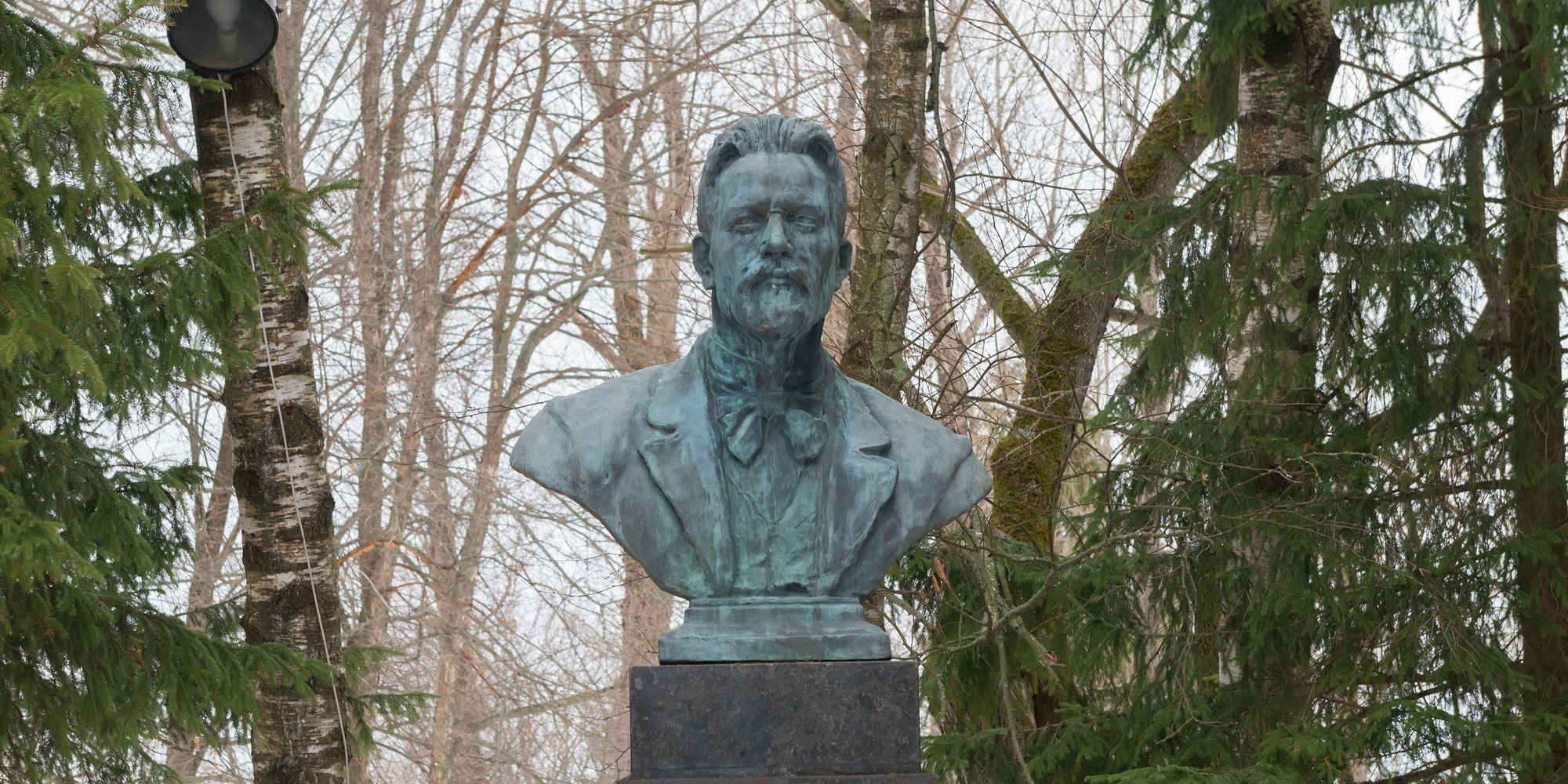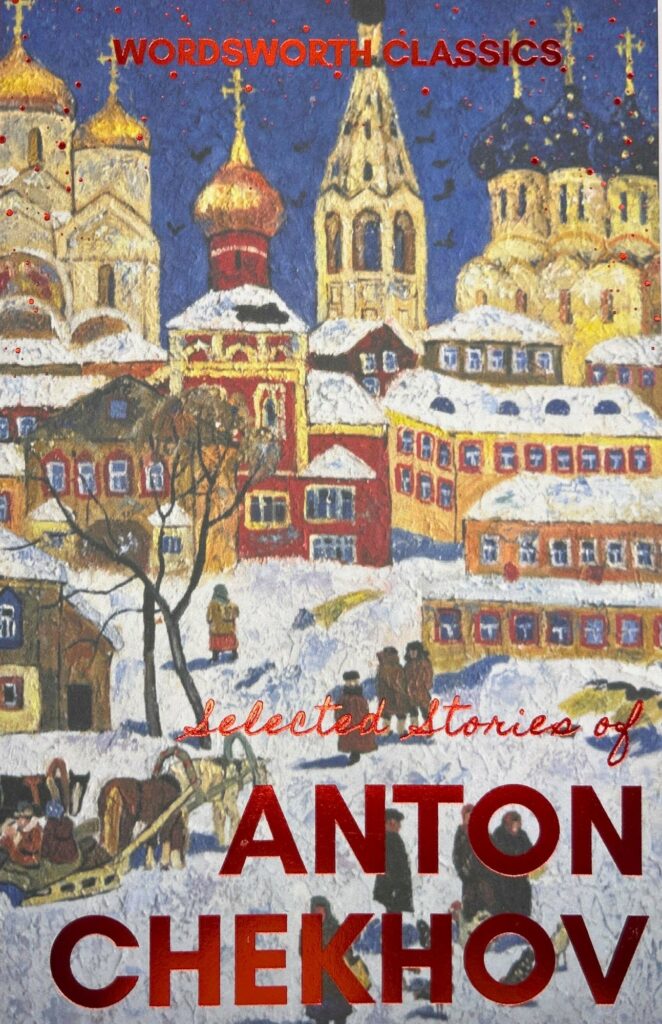
Anton Chekhov: The Short Stories
David Stuart Davies takes a look at a Russian master of the short story, Anton Chekhov.
It is probably true to say that to most people Anton Chekhov (1869 – 1904) is best remembered today for his plays such as Uncle Vanya, The Three Sisters, The Seagull and The Cherry Orchard which are regularly revived by prestigious stage companies all around the world. However, apart from being a brilliant and innovative playwright, he was also the master of the short story, penning over two hundred. Like that other genius of the form Guy de Maupassant, his snapshots of life, although set in his native Russia at the end of the nineteenth century, have not only a universality but also a timeless appeal and relevance which elevates these tales into the category of ‘the modern short story’.
Chekhov once wrote that, ‘any idiot can face a crisis – it’s day-to-day living that wears you out’. And it is this notion that is the kernel at the heart of most of his tales. He probed below the surface of life, laying bare the secret motives of his characters. Minor occurrences become the focus of the drama. The short stories lack complex plots and neat solutions; instead, they concentrate on apparent trivialities, creating a special kind of atmosphere both haunting and lyrical. Never bitter, never cynical, Chekhov related the everyday life of the little man, the cornered peasant, the teacher, the government clerk, the student, the down-at-heel intellectual – for the most part those who live grey, hopeless and apparently uneventful lives – but in doing so revealed there was great drama, comedy, tragedy in the commonplace.
An ideal example of his approach to the narrative is found in the story ‘The Death of the Official’, which concerns Ivan Chervyakov, a petty government official who, while in the theatre, sneezes on the head of a man sitting in front of him. This happens to be General Brizzhalov, a high-ranking official. Following the embarrassing incident, Chervyakov spends a great deal of time and effort attempting to make amends for his faux pas by ingratiating himself with the General but his actions bring about grave results.
Through his tales Chekhov managed to universalise commonplaces and lent dignity to the pathos of the most ludicrous of personalities. The story ‘Lean and Fat’ epitomises this particular aspect of his writing. It is a slender narrative with nothing that one could consider a plot. The story merely involves a brief encounter between two men who in their childhood were close comrades but it speaks volumes concerning the changing nature and fragility of friendship. At a railway station the fat one, Mischa, accidentally meets the thin one, Porfiri. The thin man travels accompanied by his wife and son who are equally as thin – their size reflecting their lack of success in life. The two old school friends, who have not seen each other since their youth, greet each other in an exuberant and informal manner. A conversation follows about the careers of both of them as government officials. The thin one appears to be an office chairman with a low salary, and his wife gives music lessons. By contrast, the fat one has become a Privy Council and has greater authority than the other. Their conversation not only highlights how different they are from their younger selves but also how alien they are now to one another. Also, Chekhov is able to use this anecdotal encounter to attack and pillory the strict vertical nature of Russian society during his time. The ending is very poignant.
This particular tale illustrates Chekhov’s theory and practice in creating a short story – in Russian, it was called Chekhov’s Gun – which is a dramatic principle that states that every element in a story must be necessary, and irrelevant elements should be removed; elements should not appear to make ‘false promises’ by never coming into play … ‘Remove everything that has no relevance to the story’.
Before he earned enough to allow him to write full time, Chekhov was a doctor who went out of his way to help the poor and needy. His encounters with poverty and squalor – the injustices of life – angered him and influenced his writing. The much-quoted lines from his letter to the poet Alexey Plescheyev are perhaps the clearest articulation of his philosophy: ‘My holy of holies is the human body, health, intelligence, talent, inspiration, love and absolute freedom – freedom from violence and falsehood, no matter how the last two manifest themselves.’ The little man, the insignificant man, the naïve man find sympathy in Chekhov’s tales. Their plight is recognised and illuminated.
This aspect of the human condition is examined in the story ‘Dreams’, which incorporates the themes of appearance, identity, struggle, freedom, hopes and aspirations. The narrative involves two constables escorting a prisoner to gaol. In the course of the story the incidents that befall the trio illustrate the author’s message that everyone, whether or not they are guilty or innocent of a crime or misdemeanour, longs to be free.
Vladimir Ivanovich Nemirovich-Danchenko, the Russian theatre director, writer, playwright, producer and founder of the Moscow Art Theatre called Chekhov the poet of the bourgeoisie, which may account for why the Soviets do not, in general, rate his work highly. By contrast, he exercised considerable influence on English writers, especially during the 1920s. He was particularly admired by Somerset Maugham and Saki.
In the last twenty years of his life Chekhov gradually he devoted more of his time to writing plays. He began writing more slowly and focusing more on the plays than before, but his stories continued to appear in the leading magazines published in St. Petersburg and Moscow. Chekhov was popular and admired. Anton Chekhov died of tuberculosis at the young age of forty-four. Who knows how many more stories he would have created had he lived longer. Nevertheless, despite the comparative brevity of his writing career produced a remarkable treasury of wonderful, insightful and engaging tales which we can still read and enjoy.
Image: Monument to Anton Chekhov, State Literary Memorial Museum, Reserve of Anton Chekhov, Melikhovo.
Editorial credit: Pukhov K / Shutterstock.com
Books associated with this article
